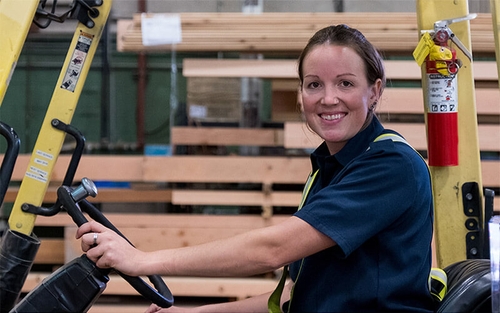Estimated reading time: 2 minutes
A warehouse is more than just a building where products sit on shelves: It is a fast-paced, ever-changing environment that warehouse managers need to run efficiently.
Warehouse management is not for the faint of heart. It is a demanding career that comes with daily challenges and tight deadlines. For those who are up for the challenge, it is an extremely rewarding profession that keeps you on the move.
Continue reading for all the information you need about what a warehouse manager does so you can decide if it is a career you should pursue.
Warehouse manager duties
A warehouse manager oversees all operations that take place at a warehouse. They typically report to upper management or the owner of the company. Depending on the size of the facility, they may have one or more assistants who help with day-to-day tasks.
Warehouse manager responsibilities typically include:
- Leading a safe work environment.
- Ensuring efficient operations.
- Organizing teams and managing staff.
- Overseeing process management and continuous improvement.
- Handling quality and cost control matters for the warehouse.
- Controlling functions such as shipping and receiving, inventory and order fulfillment.
- Budgeting and forecasting.
- Maintaining high performance standards.
- Mentoring and coaching employees.
How much do warehouse managers make?
Warehouse managers are vital to the company they work for and play a critical role in ensuring products are delivered on time without problems. That is why warehouse managers are well compensated.
According to the Bureau of Labor Statistics, warehouse managers earn an average of $99,040 per year.
Essential warehouse manager skills
Successful warehouse managers have a unique combination of business and interpersonal skills. These skills allow them to balance the needs of the business with the needs of the associates who work for them.
Some of the must-have warehouse manager skills include:
- Strong leadership and mentoring abilities.
- Incredible organizational skills.
- Ability to multitask.
- Ability to motivate a team and instill a sense of pride in their work.
- Effective communication.
- Strong problem-solving.
- Ability to think on your feet.
- A knack for building and implementing efficient workflows.






